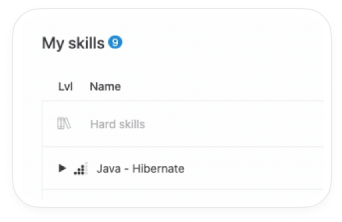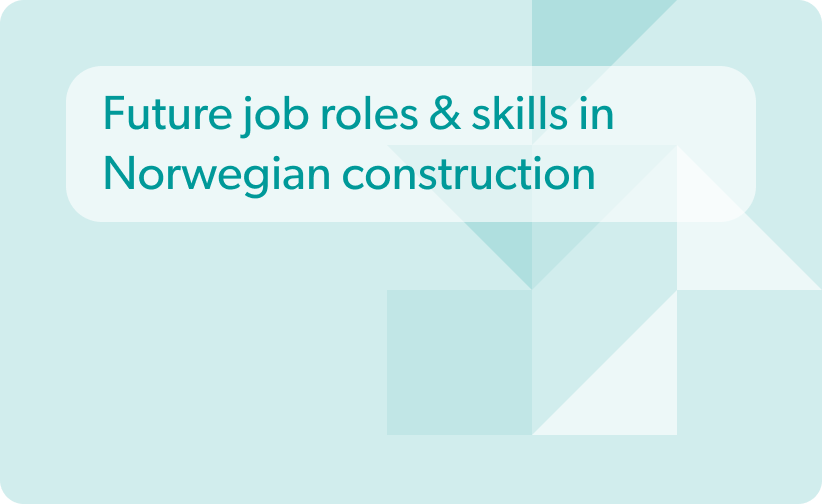Critical insights for hospitality leaders on smart tech, workforce gaps, and sustainability challenges
Table of contents
- Understanding smart hospitality through Porter’s five forces analysis
- A workforce of 320 million people and a 63% skilled worker shortage
- What factors contribute to employees choosing to exit the hospitality profession?
- The 2-degree Celsius cap, Net zero emission, 2030 Agenda for Sustainable Development and more
- Is the swift response of the hospitality industry to sustainability initiatives sufficient?
- Conclusion
As we look toward 2024 and beyond, decision-makers in the hospitality industry will find essential information related to smart hospitality, skilled worker shortages, and sustainability challenges in the hospitality industry. This post addresses the specific needs and challenges business owners and C-suite executives face within the hospitality industry. The content focuses on food and beverage, travel and tourism, lodging, and recreation, providing valuable insights, key statistics, and practical solutions.
Understanding smart hospitality through Porter’s five forces analysis
The global smart hospitality market, poised to reach $133.7 billion by 2031 with a projected CAGR of 22% from 2022 to 2031, is at the forefront of industry transformation. As businesses invest substantially in disruptive technologies such as artificial intelligence and the Internet of Things, the aim is clear: to revolutionize administration, enhance operational efficiency, and deliver unparalleled services to visitors. This optimistic trajectory, however, encounters challenges in the form of high implementation and maintenance costs, as well as concerns surrounding data security and information sharing.
With Porter’s Five Forces analysis, let’s consider the competitive smart hospitality market to shed light on the strategic dynamics shaping competition and business strategy in this sector.
Source: Wikipedia
Threat of new entrants
Incorporating smart solutions demands a substantial upfront investment, acting as a formidable barrier for potential new entrants. The nature of implementing technologies like AI and IoT favors established players who have already made strides in embracing these innovations.
Bargaining power of customers
Smart technologies empower customers with personalized and efficient services and raise their expectations. Transparent feedback facilitated by these solutions significantly amplifies the bargaining power of customers. This creates a competitive landscape where hospitality establishments compete rigorously to offer superior smart-enabled guest experiences.
Bargaining power of suppliers
While the supplier landscape for smart hospitality solutions may be fragmented, providers of specialized technology components hold sway. Suppliers’ potential for forward integration, coupled with the critical nature of their offerings to smart systems, impacts their bargaining power within the industry.
Threat of substitute products or services
The evolution of smart hospitality solutions introduces a nuanced threat of substitutes. Alternative accommodations, driven by emerging technologies like vacation rentals and home-sharing platforms, pose a multifaceted challenge to traditional hospitality. The adaptability of smart solutions in these substitute services reshapes the market’s competitive dynamics.
Intensity of competitive rivalry
Establishments are in a race for technological differentiation, with global hotel chains leveraging established brands internationally. Concurrently, local players intensify their focus on regional markets. This dynamic interplay between traditional and smart-enabled hospitality services heightens the competition for coveted market share.
The challenges to confluence smart hospitality solutions underscore the importance of a skilled and adaptive workforce. Because the workforce in smart hospitality is not merely a user but a crucial driver of these transformative technologies.
A workforce of 320 million people and a 63% skilled worker shortage
In 2023, the hospitality workforce comprises approximately 320 million people, and an additional 126 million jobs are expected to be created between now and 2032. The hospitality sector is a significant driver of job growth and economic prosperity, accounting for 1 in 10 jobs worldwide and directly contributing to the global GDP.
Source: Statista
However, the pulse of the hospitality industry is currently strained by a demand-supply gap of over 60%, underscoring the pressing need for additional manpower. What’s more, a significant 63% of those employed in the hospitality industry are grappling with a pronounced skill shortage. Combined with a 65% employee turnover rate in the hospitality industry, it threatens the very existence of this industry for seamless delivery of exceptional guest experiences.
What factors contribute to employees choosing to exit the hospitality profession?
Factors on both sides drive the “skills gap” in the sector; on the one hand, the shortfall in skilled, experienced working professionals, and on the other hand, the uphill battle to attract new talent to the future pipeline. With staggeringly low enrollment rates in Hospitality Management courses, which have traditionally been the funnels feeding into the talent pool, it’s time for the sector to look at alternate sources. The question arises: what is causing employees to opt out of a profession in hospitality? Working conditions? Employee motivation? A lack of social dialogue? Or all of them?
Challenging working conditions
- Irregular and unsocial working hours include split, weekend, and night shifts
- Increased stress, especially for workers with family responsibilities
- Gender disparity in vulnerable jobs leads to poor working conditions for women.
Poor employee motivation
- Predominance of casual, temporary, seasonal, and part-time employment
- Low pay, job instability, and limited career opportunities lead to low motivation
- Lack of motivational factors such as better salary, job security, and career progression.
Lack of social dialogue
- Essential for quality service, social dialogue is lacking in many hospitality enterprises.
- Limited communication between management and the workforce.
- Weak representation of workers and low union density hinder effective dialogue.
- Challenges related to shift work, job classification, payment and wages, skills development, gender equality, and more.
HR leaders, we can bet you know the answers to hospitality-related workforce challenges
The answer to workforce challenges has always been strategic workforce planning. By aligning your human capital strategy with business goals, you not only bridge existing gaps but proactively prepare for the future demands of the industry.
The 2-degree Celsius cap, Net zero emission, 2030 Agenda for Sustainable Development and more
HRForecast’s report in July 2023 highlighted the impact of climate change on the global labor market, with a notable increase in job postings related to climate-conscious roles. These included:
- In July 2023, amidst a record-breaking temperature surge, there was a 17% increase in job postings compared to the previous year.
- The Americas, especially South American countries, experienced a surge in global job postings, reducing North America’s share.
- Over two years, job postings related to climate change have more than doubled.
- Demand for climate-change-related jobs is evident across all regions, with technologically advanced nations leading the trend.
- The spectrum of climate-related roles spans diverse industries, with insurance companies at the forefront due to increasing risks of extreme weather conditions.
The global hospitality industry significantly impacts the environment, and issues of waste production, carbon dioxide emissions, energy, and water consumption all contribute towards a sustainability track record populated with challenges but also demonstrate a commitment to change.
The Paris Agreement is a legally binding international treaty on climate change to hold “the increase in the global average temperature to well below 2°C above pre-industrial levels” and pursue efforts “to limit the temperature increase to 1.5°C above pre-industrial levels.”
In 2019, the UK became the first major economy to pass a net zero emissions law, aiming to bring all greenhouse gas emissions to net zero by 2050.
The 2030 Agenda for Sustainable Development mentions the hospitality sector, which must deliver on three of the 17 SDGs: SDG 8 on ‘Decent Work and Economic Growth’, SDG 12 on ‘Responsible Consumption and Production’, and SDG 14 on ‘Life below Water.’
The pressure is building for the hospitality industry to prioritize sustainability.
The hospitality industry faces mounting pressure from various fronts, notably at the stakeholder level, driven by the surge in ESG (environmental, social, and governance) criteria as key investment considerations. This trend is gaining traction in the United States and rapidly expanding across Europe, with the UK taking the lead.
Moreover, the escalating energy costs in major economies pose a significant challenge for the hospitality industry. Those failing to implement measures to curtail energy consumption or explore alternative energy sources may encounter considerable budgetary difficulties. The complexity heightens in an era where the guest experience hinges on accessing top-notch amenities.
In the aftermath of the pandemic, changing guest attitudes heightened awareness of climate change, and the rising expectations of Millennial travelers have fostered a growing demand for luxury hospitality and travel brands to adopt sustainability measures proactively.
Is the swift response of the hospitality industry to sustainability initiatives sufficient?
While visible measures like adopting LED lighting, installing water-efficient facilities, and encouraging towel reuse are evident, the complexities of the challenge persist. Key areas of concern include:
Securing stakeholder buy-in. Transitioning to more sustainable practices requires unanimous support, posing challenges in garnering stakeholder buy-in. The objective is to achieve collective commitment, aligning everyone toward shared sustainability goals.
The F&B challenge. Globally, the hospitality sector generates an annual average of 289,700 tonnes of waste, including 79,000 tonnes of food waste. This challenge is exacerbated by guest expectations for lavish buffets, and the demand for personalized culinary experiences, contributing to an exceptionally high carbon footprint per meal.
Development of a sustainable workforce. Several factors collectively contribute to a demotivated workforce less inclined to engage actively and champion sustainability-related initiatives. For example:
- The prevalence of short-term thinking and the misconception that lower-level hospitality positions don’t require specific skills undermine workers’ professional identity, creating a mindset that may resist embracing sustainable practices.
- Viewing employees as a cost rather than an asset diminishes their motivation to participate actively in sustainability initiatives, as they may feel undervalued.
- Additionally, poor working conditions, limited career advancement, and insufficiently addressed diversity issues create an environment less conducive to fostering a collective commitment to sustainability.
Transform the challenges of unsustainable practices into opportunities for sustainability
From innovative solutions to address short-termism, skill misperceptions, and diversity gaps to fostering an environment where employees are recognized as assets and motivated to participate actively in sustainability initiatives, HRForecast has got your back.
Conclusion
While the hospitality industry has demonstrated impressive resilience post-pandemic, it now faces new uncertainties that may cast a shadow over its complete recovery. Key strategies outlined in the blog post become the sharper focus, urging businesses to prioritize value and flexibility, embrace technology, emphasize sustainability, and foster strong partnerships. In the face of a 60% demand-supply gap and a 40% skilled worker shortage, aligning human capital strategy with business goals becomes imperative.
Contact our consultants to explore the convergence of workforce-related challenges and solutions in the hospitality industry.
Stay up to date with our newsletter
Every month, we’ll send you a curated newsletter with our updates and the latest industry news.





























 info@hrforecast.de
info@hrforecast.de
 +49 89 215384810
+49 89 215384810






